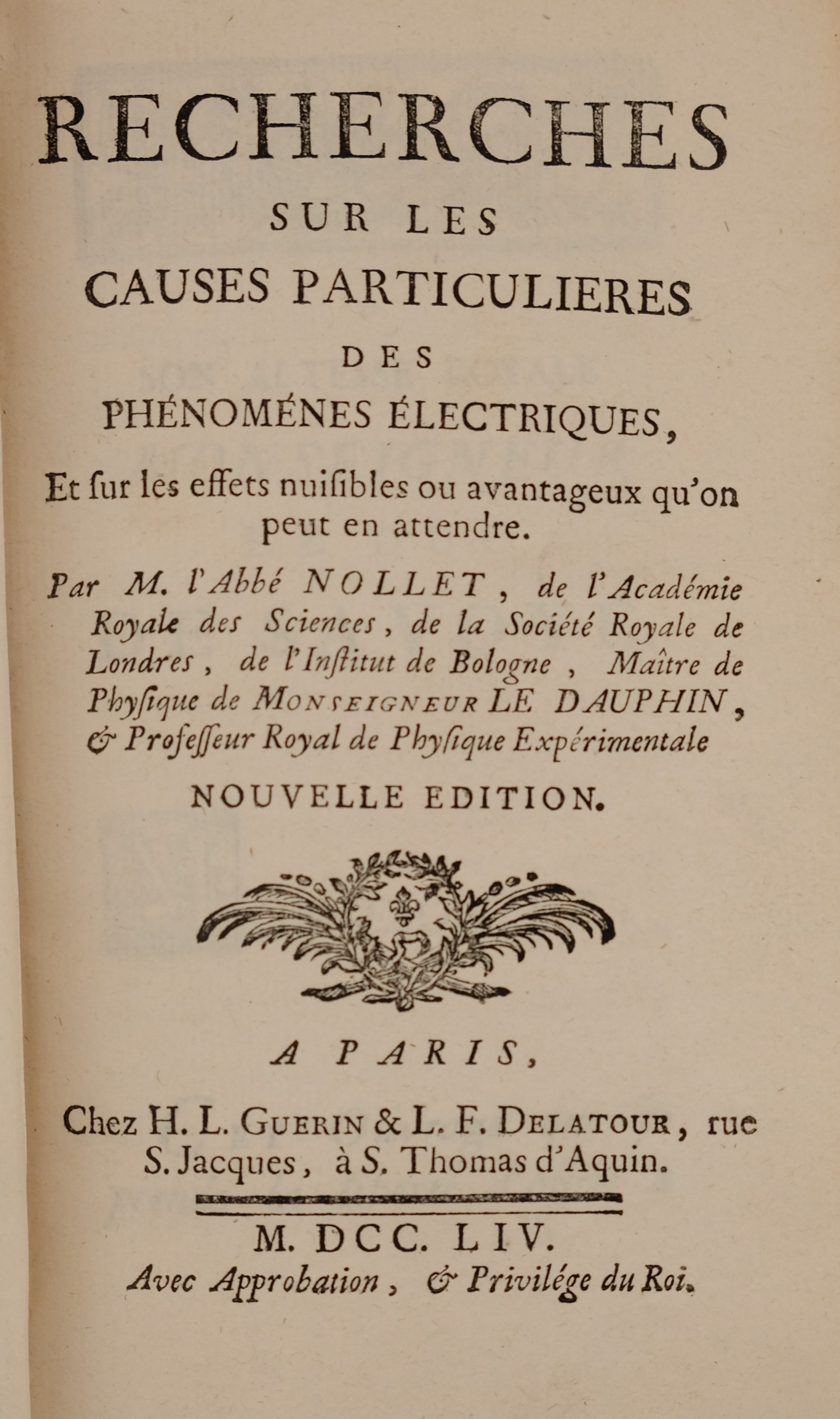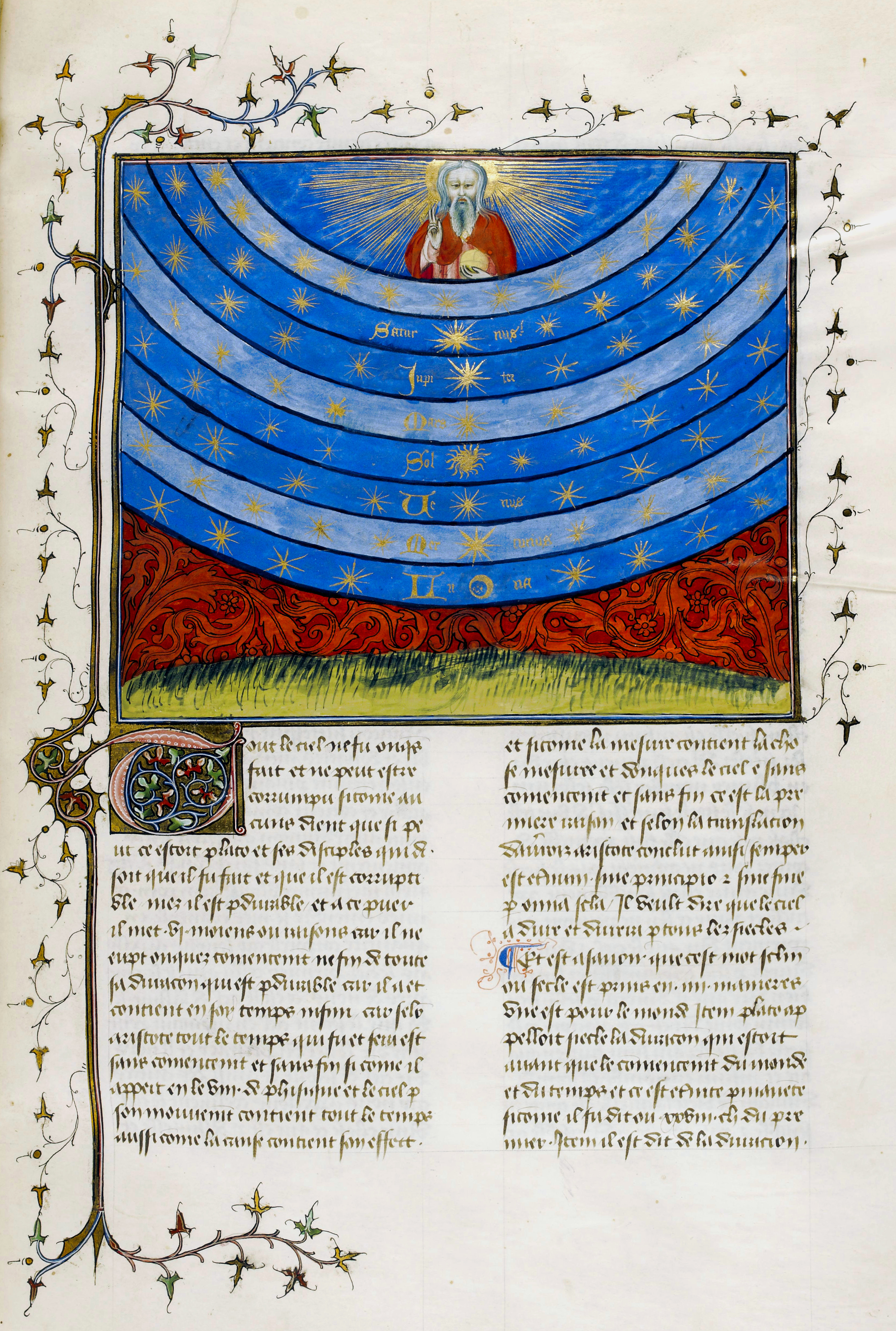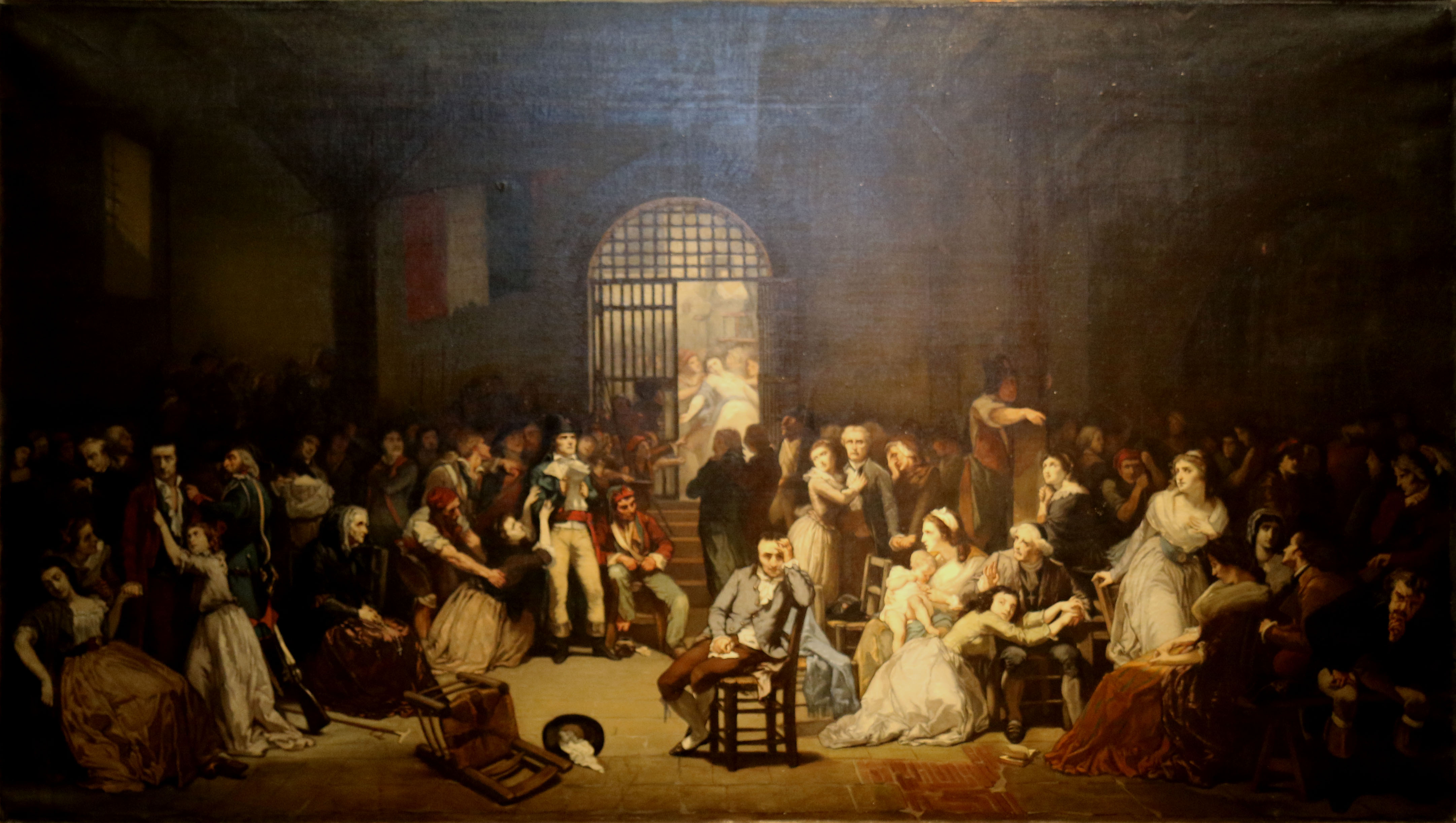|
Collège De Navarre
The College of Navarre (, ) was one of the colleges of the historic University of Paris. It rivaled the University of Paris, Sorbonne and was renowned for its library. History The college was founded by Queen Joan I of Navarre in 1305, who provided for three departments, the arts with 20 students, philosophy with 30 and theology with 20 students. The queen bequeathed part of her fine ''hôtel de Navarre'' in rue Saint André des Arts, together with lands generated rents of 2000 ''livres'' p.a. in her counties of Champagne and Brie. Her trustees decided to sell the Paris property and acquire an ample plot on the Montagne Sainte-Geneviève (rue de la Montagne-Sainte-Geneviève / rue Descartes), right in the Latin Quarter, and build the college anew. The first stone, laid 12 April 1309, was for the college chapel. Provision was made also for the scholars' support, 4 Paris sous weekly for the artists, 6 for the logicians and 8 for the theologians. These allowances were to continue ... [...More Info...] [...Related Items...] OR: [Wikipedia] [Google] [Baidu] |
François D'Amboise
François d'Amboise (1550 – 1619) was a French jurist and writer. He was counsellor to the Parlement of Brittany and advocate general to the Grand Conseil. Biography François d'Amboise was born in Paris, the son of Jean d'Amboise, ordinary surgeon of the king, and the brother of Adrien d'Amboise, Bishop of Tréguier, and of Jacques d'Amboise ( rector of the University of Paris). He studied rhetoric and philosophy at the College of Navarre (Paris); in 1568 he became regent to the second grade there and taught literature and philosophy. In 1581, he became the king's lawyer in the treasury, and in 1586, advocate general to the Grand Conseil. In 1589, Henri III granted him letters of nobility. In 1596, Henry IV named him maître des requêtes, and then, in 1604, Conseiller d'État. François d'Amboise became seigneur of Vezeul, Bourot, Neuillé-le Lierre, Brouard, Lespinière, La Huardière in Touraine, of Houvoy, Malnoue, Courserin, Plessis-Bourré, Hémery, and B ... [...More Info...] [...Related Items...] OR: [Wikipedia] [Google] [Baidu] |
Cardinal Richelieu
Armand Jean du Plessis, 1st Duke of Richelieu (9 September 1585 – 4 December 1642), commonly known as Cardinal Richelieu, was a Catholic Church in France, French Catholic prelate and statesman who had an outsized influence in civil and religious affairs. He became known as the Red Eminence (), a term derived from the style of Eminence (style), Eminence applied to Cardinal (Catholic Church), cardinals and their customary red robes. Consecrated a bishop in 1607, Richelieu was appointed Secretary of State for Foreign Affairs (France), Foreign Secretary in 1616. He continued to rise through the hierarchy of both the Catholic Church and the French government, becoming a Cardinal (Catholic Church), cardinal in 1622 and Chief minister of France, chief minister to King Louis XIII, Louis XIII of France in 1624. He retained that office until his death in 1642, when he was succeeded by Cardinal Cardinal Mazarin, Jules Mazarin, whose career the cardinal had fostered. Richelieu became enga ... [...More Info...] [...Related Items...] OR: [Wikipedia] [Google] [Baidu] |
Jean-Antoine Nollet
Jean-Antoine Nollet (; 19 November 170025 April 1770) was a French clergyman and physicist who conducted a number of experiments with electricity and discovered osmosis. As a deacon in the Catholic Church, he was also known as Abbé Nollet. Biography Nollet studied humanities at the Collège de Clermont in Beauvais, starting in 1715. He completed a master's degree in the Faculty of Theology at the University of Paris in 1724. He was ordained a deacon in the Catholic Church in 1728, but suspended his clerical career. However he used the title of Abbé throughout his life. Nollet was particularly interested in the new science of electricity. He joined the Société des Arts in 1728, an association which was reestablished from a previous version which ended in 1723. Formed under the patronage of Comte de Clermont, the Société focused on applying natural philosophy to practical arts. This association gave Nollet the opportunity to come into contact with important natural philosoph ... [...More Info...] [...Related Items...] OR: [Wikipedia] [Google] [Baidu] |
Nicole Oresme
Nicole Oresme (; ; 1 January 1325 – 11 July 1382), also known as Nicolas Oresme, Nicholas Oresme, or Nicolas d'Oresme, was a French philosopher of the later Middle Ages. He wrote influential works on economics, mathematics, physics, astrology, astronomy, philosophy, and theology. He was Bishop of Lisieux, a translator, a counselor of King Charles V of France, and one of the most original thinkers of 14th-century Europe. Life Nicole Oresme was born in the village of Allemagnes (today's Fleury-sur-Orne) in the vicinity of Caen, Normandy, in the diocese of Bayeux. Practically nothing is known concerning his family. The fact that Oresme attended the royally sponsored and subsidised College of Navarre, an institution for students too poor to pay their expenses while studying at the University of Paris, makes it probable that he came from a peasant family. Oresme studied the "arts" in Paris, together with Jean Buridan (the so-called founder of the French school of natural philos ... [...More Info...] [...Related Items...] OR: [Wikipedia] [Google] [Baidu] |
Charles-François Lebrun, Duc De Plaisance
Charles-François is a given name. Notable people with the name include: * Charles-François de Broglie, marquis de Ruffec Charles-François is a given name. Notable people with the name include: * Charles-François de Broglie, marquis de Ruffec (1719–1791), French soldier and diplomat * Charles-François Lebrun, duc de Plaisance (1739–1824), Third Consul of Fra ... (1719–1791), French soldier and diplomat * Charles-François Lebrun, duc de Plaisance (1739–1824), Third Consul of France {{given name Compound given names ... [...More Info...] [...Related Items...] OR: [Wikipedia] [Google] [Baidu] |
Jean Gerson
Jean Charlier de Gerson (13 December 1363 – 12 July 1429) was a French scholar, educator, reformer, and poet, Chancellor of the University of Paris, a guiding light of the conciliar movement and one of the most prominent theologians at the Council of Constance. He was one of the first thinkers to develop what would later come to be called natural rights theory, and was also one of the first individuals to defend Joan of Arc and proclaim her supernatural vocation as authentic.Richard Tuck, ''Philosophy and Government 1572-1651'' (1993), pp. 25-7. Aged fourteen, he left Gerson-lès-Barby to study at the college of Navarre in Paris under Gilles Deschamps, (Aegidius Campensis) and Pierre d'Ailly (''Petrus de Alliaco''), who became his life-long friend. Early life and education Gerson was born at Gerson-lès-Barby, :fr:Gerson (paroisse de Barby), Gerson (paroisse de Barby) a hamlet in the present municipality of Barby, Ardennes in the bishopric of Reims in Champagne (historical pro ... [...More Info...] [...Related Items...] OR: [Wikipedia] [Google] [Baidu] |
William Fowler (makar)
William Fowler (c. 1560 – 1612) was a Scottish poet or makar (royal bard), writer, courtier and translator. Early life William Fowler was the son of Janet Fockart and William Fowler, a well-connected Edinburgh merchant burgess who sold a variety of fine fabrics. He graduated from St Leonard's College, St Andrews in 1578. By 1581 he was in Paris studying civil law. At this time he published ''An ansvver to the calumnious letter and erroneous propositions of an apostat named M. Io. Hammiltoun'' a pamphlet criticising John Hamilton and other Catholics in Scotland, who he claimed had driven him from that country. In response, two Scottish Catholics, Hamilton and Hay, manhandled him and dragged him through the streets to the Collège de Navarre. London and secret correspondence Following his return to Scotland, he visited London to retrieve some money owed to his father by Mary, Queen of Scots. Here he frequently visited the house of Michel de Castelnau, Sieur de Mauvissiere ... [...More Info...] [...Related Items...] OR: [Wikipedia] [Google] [Baidu] |
Oronce Finé
Oronce Fine (or Finé; Latin: ''Orontius Finnaeus'' or ''Finaeus''; ; 20 December 1494 – 8 August 1555) was a French mathematician, cartographer, editor and book illustrator. Life Born in Briançon, the son and grandson of physicians, he was educated in Paris (Collège de Navarre) and obtained a degree in medicine in 1522. Fine grew up in an academic household, and his parents' contribution to the sciences was notable in France at the time. Much of Fine's early childhood was shaped by his father's involvement and support of sciences. Fine's father in addition to being a physician was a strong student in astronomy. He had created many astronomical instruments and published a treatise which was one of the few astronomical incunabula of French origin. Fine's university was known as a leading center at Paris for the study of scholastic philosophy and theology. There he fostered his editing ability and later printed many editions of writings from scholars. It is believed that his c ... [...More Info...] [...Related Items...] OR: [Wikipedia] [Google] [Baidu] |
Thomas Dempster
Thomas Dempster (23 August 1579 – 6 September 1625) was a Scottish scholar and historian. Born into the aristocracy in Aberdeenshire, which comprises regions of both the Scottish highlands and the Scottish lowlands, he was sent abroad as a youth for his education. The Dempsters were Catholic in an increasingly Protestant country and had a reputation for being quarrelsome. Thomas' brother James, outlawed for an attack on his father, spent some years as a pirate in the northern islands, escaped by volunteering for military service in the Low Countries and was drawn and quartered there for insubordination. Thomas' father lost the family fortune in clan feuding and was beheaded for forgery. For these and political and religious reasons in these often violent Elizabethan era, Elizabethan times Thomas was unable to come home except for visits. Of uncommon and impressive height and intellectual ability he became an itinerant professor in France and Italy, driven from place to place b ... [...More Info...] [...Related Items...] OR: [Wikipedia] [Google] [Baidu] |
André Chénier
André Marie Chénier (; 30 October 176225 July 1794) was a French poet associated with the events of the French Revolution, during which he was sentenced to death. His sensual, emotive poetry marks him as one of the precursors of the Romantic movement. His career was brought to an abrupt end when he was guillotined for supposed "crimes against the state". Chénier's life has been the subject of Umberto Giordano's opera ''Andrea Chénier'' and other works of art. Life Chénier was born in the Galata district of Constantinople. His family home, destroyed in a fire, was located on the site of the present Saint Pierre Han, in today's Karaköy neighborhood of Istanbul. His father, Louis Chénier, a native of Languedoc, after twenty years in the Levant as a cloth-merchant, was appointed to a position equivalent to that of French consul at Constantinople. His mother, Élisabeth Santi-Lomaca, whose sister was grandmother of Adolphe Thiers, was of Greek Cypriot origin. When André w ... [...More Info...] [...Related Items...] OR: [Wikipedia] [Google] [Baidu] |
Marquis De Condorcet
Marie Jean Antoine Nicolas de Caritat, Marquis of Condorcet (; ; 17 September 1743 – 29 March 1794), known as Nicolas de Condorcet, was a French Philosophy, philosopher, Political economy, political economist, Politics, politician, and mathematician. His ideas, including support for liberal economy, free markets, Universal access to education, public education, constitutionalism, constitutional government, and Social equality, equal rights for women and people of all races, have been said to embody the ideals of the Age of Enlightenment, of which he has been called the "last witness", and Enlightenment rationalism. A critic of the constitution proposed by Marie-Jean Hérault de Séchelles in 1793, the Convention Nationale – and the Jacobin faction in particular – voted to have Condorcet arrested. He died in prison after a period of hiding from the French Revolutionary authorities. Early years Condorcet was born in Ribemont (in present-day Aisne), descended ... [...More Info...] [...Related Items...] OR: [Wikipedia] [Google] [Baidu] |





